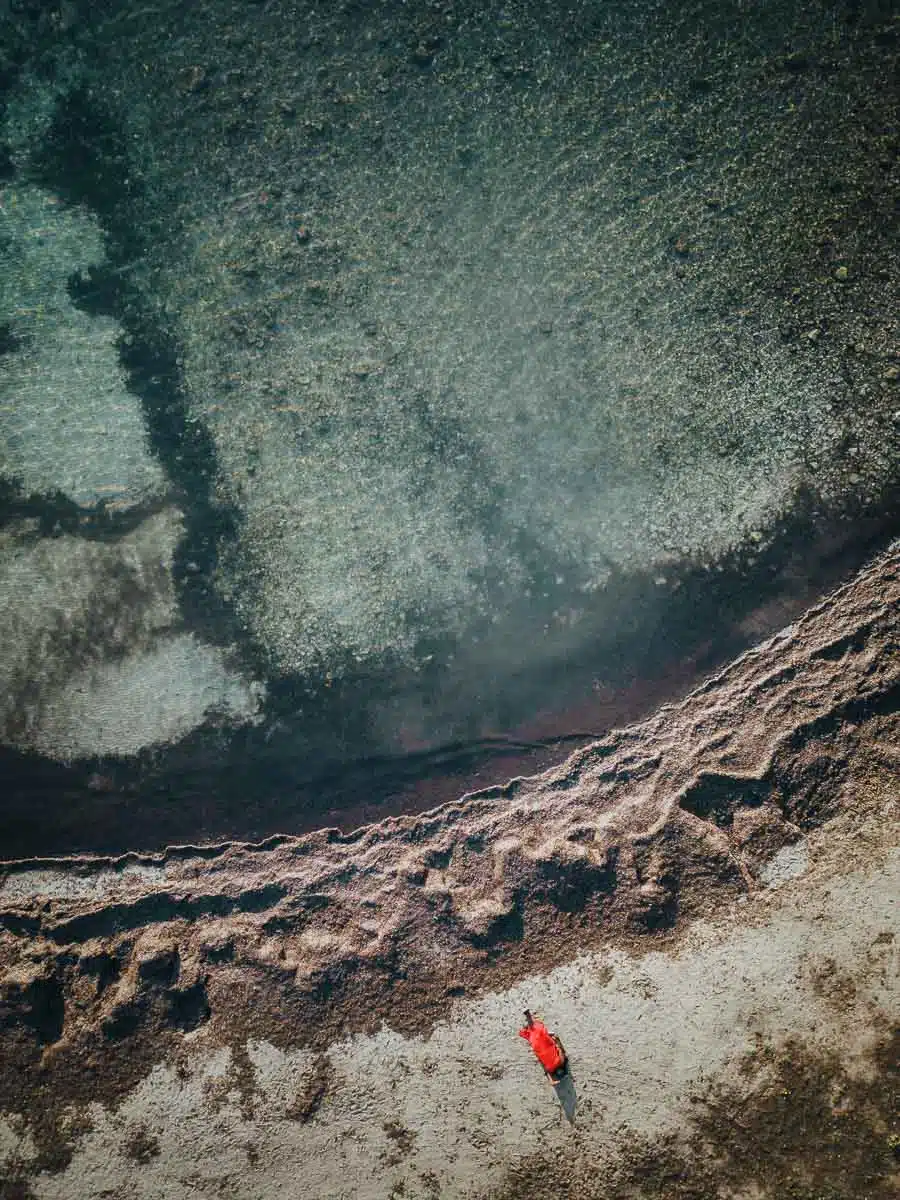Navigating the world of travel insurance can be as tough as planning the journey itself. What is travel insurance and why do you need it? Swot up with this insider’s guide to choosing the perfect travel insurance for your trip.
Talking about travel insurance always feels a little pessimistic doesn’t it? After all, if everything goes swimmingly on every single trip you ever take, you’ll never need it.
Hate to break it to you, but this is real life. Things go wrong, trips go haywire and travel insurance seems like the most boring thing in the world until you need it.
These days, there are more options for travel insurance coverage than you can count, making understanding the differences between policies before you take them out more important than ever.
If it all seems like a lot to wrap your head around, fear not. This in-depth guide takes you through everything you need to understand travel insurance before choosing the best option for you.
Dive in and let’s demystify the process of selecting the right travel insurance to safeguard against the unexpected.
What is Travel Insurance, and Do You Really Need It?

Travel insurance is a type of coverage that protects you against unforeseen events and financial risks while you are travelling. Policies often cover the most common problems travellers face on vacations.
Sounds perfect, right? But let’s dig a little deeper.
Things like flight delays or cancellations, illnesses, family emergencies, lost luggage or unexpected hospital visits can set you back a small fortune when taking a trip. Travel insurance provides a fallback plan by covering you for various eventualities that might disrupt or impact your journey.
That said, there are a lot of options to choose from, and some may work better than others, depending on you and how you travel. It often comes down to doing a quick risk-reward analysis.
Example? If you’re taking a road trip for the weekend where you can easily access emergency services from your local medical provider and aren’t carrying much luggage – you may want to skip it.
But when you’re travelling across the country (or world), the protection you receive for cancelled flights, hotel rooms, and international healthcare is well worth the small investment.
In fact, I’ll tell you my own story about how travel insurance saved me a boatload of money in a bit.
Benefits of Choosing the Right Travel Insurance

Knowing how to choose the right travel insurance can save you so many headaches, frustrations, and a ton of money.
It can also save you time, as many travel products have support teams who can help you during medical emergencies.
So how exactly does travel insurance work in your favour?
- You can benefit from more than one type of protection under a single plan.
- Specific insurance products are available for adventure travel, cruise ships, and niche travel types that require extra protection normally not covered by traditional travel insurance plans.
- Knowing how to select travel insurance allows you to save money by choosing a product for your travel type, medical history, and duration of travel.
Understanding Travel Insurance: What Does it Cover?
Trip Cancellation and Interruption

One of the most common forms of travel insurance is trip cancellation and interruption. I’ve learned the hard way that it’s well worth the small upfront investment (often well under 5% of the total trip cost).
Last-minute cancellations due to weather, injuries, illnesses, and bereavement are all eligible grounds for reimbursement on pre-paid travel arrangements with most travel insurance plans. Not bad, right?
What about the dreaded Covid? Many of the best travel insurance plans (I use AXA which has policies for US and European citizens) now cover Covid-19 related cancellations and interruptions, making it a popular choice since quarantining before or during a holiday can be a costly measure.
Medical Expenses and Emergency Medical Evacuation
Medical emergencies are the most important component for people wondering how to choose travel insurance. Trust me, I know firsthand.
My Personal Experience with Medical Expense Coverage

Last summer, when I was shooting the night sky in Zion National Park, I was bitten by a bat out of the blue, which kicked off a whole chain of events I could never have anticipated.
Honestly, it’s one of the craziest and most stressful experiences I’ve had while travelling (and that includes the time I was held up at gunpoint in Bolivia tbh) – not just because of the shock of the event itself, but also because I then had to work out what to do and how to get medical help.
For all the copious amounts of stress, I was pretty relaxed about the cost of the treatment because I checked with my insurer that any trips to the ER and required medication would be covered by the policy.
Thank god, because between my visit to the ER, and the required rabies, tetanus and immunoglobulin shots while there, the hospital bill racked up to over $12,000 – and that was with me returning to the UK to have the rest of the 4-shot course of the rabies jabs on the NHS.
FYI: The photos I took that night were good, but they weren’t $12,000+ dollars worth of good.
Common Coverage Under Medical Travel Insurance
The most common coverage under medical insurance includes:
- International hospital visits.
- Ambulance rides to healthcare facilities.
- Medical evacuation and transportation to your home country.
- Live assistance to arrange help in emergencies, including providing documents and translating between languages.
- Emergency treatments, tests, lab results and medications.
- Covid-related treatments (in some products).
Lost Baggage and Personal Belongings

Ever lose your luggage or even just get anxious at the prospect? Not fun.
I’ve got a *fun* story about an airline losing my luggage on my way to Benicassim Festival in Spain but I don’t want to traumatise you after the drama of Zion-gate above.
You can eliminate a bit of that stress by choosing a policy with lost baggage and personal belongings protection.
Travel insurance will often allow you to get a few hundred dollars or pounds (sometimes more) if the airline sends your luggage to another destination, or just forgets to load it onto the plane resulting in a severe delay.
It can help take the sting out of waiting for your clothes or tech gadgets on holiday. Many products also have your back if items are stolen during your trip. Winning.
Many policies cover up to £2,000-£3,000 for baggage loss. There is a catch though – most set a single-item limit of around £1,000-£2,000, so you may be out of luck if you’re hauling a £2,000 camera.
Travel Delays and Missed Connections

Adding trip delay protection can help you recover losses if your travel is interrupted or postponed.
Things like missed connections, flight cancellations from natural disasters, and travel restrictions imposed due to emergencies like pandemics or other unforeseen circumstances. I fly a lot more comfortably knowing delays won’t cost me extra cash.
Personal Liability and Legal Expenses
Want to know what to look for when buying travel insurance that standard plans might not cover? Personal liability and legal expenses are a big one.
I’m a responsible traveller (and I’m sure you are, too), but accidents happen. You might want to consider potential expenses in the event of a bike accident or stepping on someone’s foot too hard while walking down the aeroplane aisle.
Many (but not all) travel insurance plans offer personal liability protection as a part of the product or as an optional add-on.
Common Exclusions and Limitations
There are a few common exclusions and limitations you’ll want to factor in when choosing your travel insurance product.
Here are a few exclusions to keep in mind:
- Expensive single items in your luggage (though you may be able to add these as add-ons or under a separate specialised policy).
- Preventative medical care.
- Prescription drugs.
- Cancelling your trip for personal reasons (non-emergencies).
Different Types of Travel Insurance Policies
There are a few classic travel insurance policy types you’ll need to decide between when picking your plan. Let’s take a look.
Single Trip Insurance

The most common types of travel insurance are single trip products.
Generally, you can sign up for medical coverage, cancellation, luggage protection, and travel delays due to unforeseen circumstances with single-trip insurance.
Annual / Multi-Trip Insurance

If you travel a lot for work (raising hand) or just find yourself taking several trips throughout the year, one crucial consideration concerning what to know about travel insurance is the difference between a single-trip and annual coverage.
Annual insurance plans are designed for frequent travellers, often featuring excellent medical coverage benefits. Generally, if you take more than three trips per year, you are better off booking annual coverage.
Annual insurance plans are ideal for frequent travellers seeking protection for international healthcare or evacuations. And many plans that don’t include cancellation coverage or delays as standard do have supplemental options for these.
Top Tip: Watch out for the maximum trip duration on your annual plan. Some policies limit coverage to trips of 14 days, while others extend to 30, 60, or even longer options. Ensure you pick the policy that covers the trips you anticipate making throughout the year.
Specialty Insurance

How do I get travel insurance for specific types of travel? Not to worry. That’s where specialty insurance comes into play.
Call your travel insurance or compare plans online when scheduling niche travel. These may include:
- Deluxe or luxury travel insurance that covers larger investments.
- Travel insurance specifically for cruises, which you can order directly from the cruise line or add cruise coverage to a more standard policy from a company like AXA.
- Adventure travel insurance that covers up to $1 million for medical evacuations, protection on equipment rentals, and fewer restrictions on coverage for injuries related to outdoor activities than traditional medical travel insurance plans (scuba diving and skiing are examples of activities that either need a specialised policy or add-on cover as they don’t normally come as standard).
So, What Should You Consider When You’re Choosing a Travel Insurance Policy?
Ok, I understand if you’re now asking yourself, “What should I look for in travel insurance? So. Many. Things.
Luckily, once you have a basic understanding of these areas, it makes the process a whole lot easier.
Trip Details and Coverage Needs
Trip Duration and Destination(s)

This might be one of the most important things to clear up before booking your travel insurance plan. Really.
Many short-term and annual policies max out at 30 days (but sometimes only cover up to 14). Don’t forget to check.
Annual plans often don’t cover trips over 90 days, so you’ll need to consider a long-term travel insurance plan if you’re taking a trip over three months long.
|
It’s so important to ensure you have long-term medical coverage when taking a trip, which you can check for on a site like InsureMyTrip or All Clear Travel.
Type of Travel (Solo / Family / Group)

Knowing how to choose the best travel insurance depends on multiple factors, and one of the most important to consider is who you’re travelling with.
There are dozens of solo travel insurance plans for every type of traveller, but what about when you’re not alone?
Many insurance companies have several tiers available and you can find many that cover yourself and a child. This might be a good choice if you plan to travel with your family, as each adult coverage includes one child up to 17 years old, even on their basic “essential” package.
Taking an organised tour with 10 of your friends? Group travel insurance can save you lots of cash and still provides you with individual coverage that you’d receive under a traditional plan.
Travelling with your parents or grandparents? Group travel insurance is especially valuable for older adults, as you’ll often enjoy the same benefits-to-cost ratio no matter your age.
Activities and Sports Involved

Adventure travel is when it starts to get a bit more tricky.
Like many things in life, high-risk activities come with consequences. It’s no surprise that insurance companies are aware of this.
But if you’re planning on vacationing to go scuba diving, trek through the jungle, or climb Mt. Everest (I’m impressed), some policies can save you considerable headaches in an emergency.
Each product is different regarding coverage, but be sure to check the small print before you take out your policy.
Exclusions and Limitations
It’s not a fun conversation, but there are often unexpected exclusions and limitations with many travel insurance plans. Here are a couple of the most common types below.
Pre-Existing Medical Conditions
Many medical emergency plans have pre-existing condition exclusions, but don’t let this deter you from travelling if you have long-term health problems. If you play by the rules, several policies allow you to waive these exclusions.
High-Value Items and Specific Exclusions
Remember when I said baggage loss products set a limit on single items? This can be a painful lesson if your travel insurance plan has high-value item exclusions in place and you lose that pair of Tiffany earrings.
Read the fine print and call the insurance provider to see if there are any exclusions for high-value items, types of travel, or pre-existing medical conditions with your insurance product.
Cost and Value for Money

How to know if you have travel insurance that is worth the money? Compare prices, and then compare again. Really.
There are so many excellent products out there, but you need to make sure it makes sense for your budget.
Policy Terms and Conditions
You know when you skip over the fine print when glossing over important documents? I’m not here to tell you what to do, but you might want to think twice about doing that.
I know from experience. I wish I paid closer attention before signing up for my previous annual travel insurance plan, which requires me to pay any balances for medical bills or expenses by cheque. Yes really.
I can’t remember even having a cheque book any time this side of the millennium – I certainly would have gone another route had I known this in advance.
Instead, I had to go to the Post Office to get a postal order to post to the provider instead of being able to hop on the phone and provide my card details as I’d expected. Now you know.
Reputation and Customer Reviews

Reading customer reviews is important in any aspect of travel, not least of which is when deciding how to pick travel insurance.
Do your homework and read as many reputable articles as possible, and compare policies and reviews using sources outside of the product’s website. It can save you a lot of headaches down the line.
Additional Services and Support
Many of the best travel insurance products offer a support team you can reach anytime.
If you’re confused about what is travel insurance exactly, and whether or not something is covered by your plan, never hesitate to reach out and ask.
In addition, many travel insurance plans offer support when you have a medical emergency with services like arranging emergency transportation or evacuation, translating important medical information in multiple languages, and paying out of pocket costs ahead of time, as required in some countries.
Buying Your Travel Insurance
Now it’s time to buy your travel insurance. Here’s how you can make that as easy as possible.
Assess Your Travel Needs and Priorities

Before you decide how to choose travel insurance, do a quick of your priorities and needs.
Ask yourself how often you travel, whether you take traditional trips or may need specialty insurance, and if you’re more concerned about medical coverage or trip cancellation protection (or both).
Research and Compare Different Insurance Providers
Use as many resources as possible when deciding which insurance provider you’re going to pick. Research and shop for the most competitive prices using the best tools for the job.
The following are some popular resources you can use to compare providers:
Get Multiple Quotes and Review Policy Details

The most important advice I can give when choosing travel insurance is to get more than one price quote.
If you find a quote online, call the insurance provider and see if they can give you a better rate.
You can often get excellent deals whether you’re looking for single coverage or travelling with a group, and talking to a representative is a great way to explore your options.
Make an Informed Decision Based on Coverage, Cost, and Reputation
Once you’ve compared different quotes from several sites, it’s time to decide how to select travel insurance that makes sense for you.
Some tips for choosing the best possible travel insurance include:
- Read peer reviews.
- Compare the cost of single-trip vs. annual plans.
- Decide what coverage matters most for you.
- Add on any extra protection for pre-existing conditions or adventure travel.
Purchase the Policy Well in Advance of Your Trip
Make sure you purchase your travel insurance the moment you book your trip.
Ok, technically, you have about two weeks on most travel insurance plans. But the sooner you choose your insurance, the better to ensure you’ll get optimal coverage and prices.
Love This? Save and Share on Pinterest








